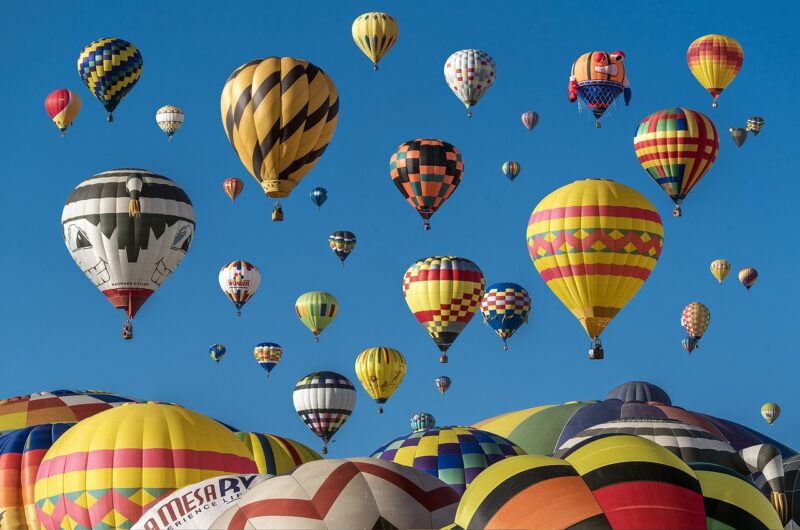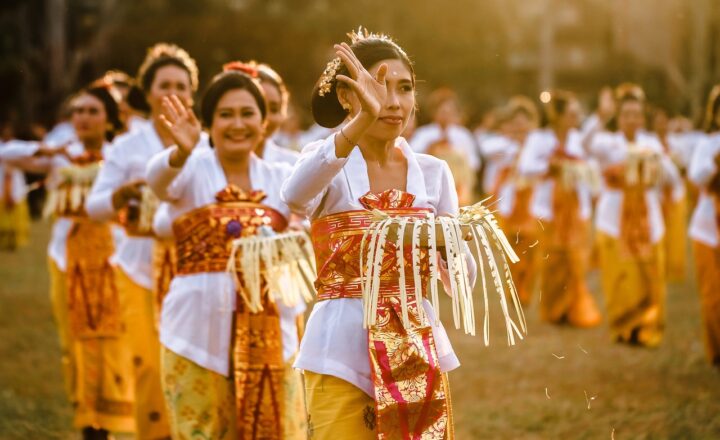How Festivals Around the World Reflect Unique Cultural Histories and Practices
November 18, 2024

Festivals are vibrant celebrations that encapsulate the rich tapestry of human culture. They reflect unique historical narratives, religious beliefs, and local practices that have evolved over generations. From carnival parades to solemn religious observances, festivals provide a window into a community’s identity, history, and aspirations.
As we traverse the globe, we find a diverse array of festivals that not only entertain but also educate and promote cultural understanding. This article will explore how festivals serve as a lens through which we can observe the cultural histories and practices that shape our world.
1. The Essence of Festivals: Celebration of Culture and Heritage
Festivals are more than mere celebrations; they hold significant cultural value. They are often tied to historical events, agricultural cycles, and religious rituals. By examining different types of festivals, we can gain insight into the lives and beliefs of the people who celebrate them.
1.1 Historical Significance
Festivals often commemorate historical events or symbolize important cultural milestones. For instance, the Day of the Dead (Día de los Muertos) in Mexico honors deceased loved ones, rooted in both Indigenous traditions and Catholic influences. This festival symbolizes the importance of family and remembrance, showcasing how historical events shape collective memory.
1.2 Agricultural Ties
In many cultures, festivals celebrate the harvest and the changing seasons. The Harvest Festival in many countries marks gratitude for a bountiful harvest and often involves communal feasts, dances, and rituals. Such festivities emphasize the strong connection between agriculture and cultural identity, representing the symbiotic relationship between humans and nature.
2. Religious Festivals: Faith, Tradition, and Community
Religious festivals provide insights into the spiritual values and traditions of cultures worldwide. They often involve rituals, prayers, and communal gatherings, reinforcing social cohesion among participating communities.
2.1 Diwali: The Festival of Lights
Diwali, celebrated by millions around the world, is a festival that represents the triumph of light over darkness. Rooted in Hindu mythology, it marks the return of Lord Rama to Ayodhya after defeating the demon king Ravana. The festival unites diverse communities, promoting a sense of belonging, love, and compassion. Lights are lit, prayers are offered, and families come together, showcasing the rich tapestry of customs associated with this ancient celebration.
2.2 Ramadan and Eid: Reflection and Celebration
Ramadan, observed by Muslims, is a month of fasting, reflection, and prayer that culminates in the joyful celebration of Eid al-Fitr. This festival signifies gratitude, charity, and community unity. While Ramadan emphasizes spiritual purification, Eid involves communal prayers, feasting, and giving to those in need, reflecting the essential values of care and compassion in Islamic culture.
3. Cultural Festivals: Regional Identity and Artistic Expression
Cultural festivals often showcase the unique artistic expressions, traditions, and practices of specific regions, contributing to a culture’s overall identity.
3.1 Rio Carnival: A Celebration of Samba and Identity
The Rio Carnival in Brazil is perhaps one of the most iconic cultural festivals in the world. This vibrant event showcases the beauty of samba, a dance that originated from African rhythms brought to Brazil. The carnival reflects the complex social tapestry of Brazilian culture, where colonial histories and cultural amalgamation find expression through music, dance, and elaborate parades. The beauty and exuberance of Rio Carnival provide insight into Brazil’s multicultural identity.
3.2 Harbin Ice Festival: A Display of Artistry and Creativity
The Harbin Ice Festival in China is a stunning showcase of ice sculptures, attracting tourists from around the globe. This winter festival reflects the artistry and creativity of its creators. It draws from local traditions and showcases the unique cultural expression of winter in the region. As a festival rooted in the harsh climate of Northeastern China, it illustrates how nature influences cultural practices and communal celebrations.
4. Festivals as Agents of Change
Festivals are not only reflections of cultural history; they can also serve as powerful agents of change. They can raise awareness about social issues and foster cultural exchange.
4.1 Pride Parades: Celebrating Diversity and Inclusivity
Pride parades around the world celebrate the LGBTQ+ community, advocating for rights and acceptance. Originating as a response to discrimination and social injustice, these festivals not only represent a fight for equality but also foster community spirit, promote cultural awareness, and encourage dialogue about diversity. They reflect societal changes and the evolving understanding of gender and sexuality.
4.2 International Film Festivals: A Platform for Voices
Film festivals like Cannes and Sundance provide a platform for filmmakers from diverse backgrounds to showcase their work. They celebrate storytelling and cultural expression while highlighting social issues through the medium of film. Such festivals contribute to global awareness, promoting cultural understanding and appreciation through the power of storytelling.
5. The Future of Festivals: Preserving Culture Amid Globalization
In an increasingly globalized world, maintaining the authenticity of traditional festivals becomes essential. As cultures blend, festivals must adapt while preserving their core values and significance.
5.1 Embracing Technology
Festivals are increasingly leveraging technology to enhance the experience and reach broader audiences. Live streaming, virtual reality, and social media play a crucial role in promoting festivals and preserving cultural heritage. Such innovations can foster global participation while maintaining local traditions and practices.
5.2 Sustainability Practices
As awareness of environmental issues grows, many festivals are implementing sustainability practices to reduce their ecological footprint. The integration of eco-friendly practices reflects a commitment to preserving cultural heritage while being responsible stewards of the environment.
Conclusion: Festivals as Cultural Mirrors
Festivals are more than just occasions for celebration; they serve as mirrors reflecting the unique cultural histories and practices of communities around the world. They capture the essence of human experiences—joy, remembrance, spirituality, and community. Through festivals, we can appreciate the diversity of cultures, fostering understanding and respect in an increasingly interconnected world. As we participate in or observe these cultural celebrations, we gain valuable insights into the shared histories and practices that unite us, reminding us of the colorful mosaic of humanity.
Embracing and elevating the cultural narratives expressed through festivals is vital for maintaining cultural heritage and promoting inclusivity and understanding among diverse communities. Understanding these rich cultural expressions helps cultivate appreciation for multiculturalism, weaving intricate connections that reveal our shared human experience.
Join the celebration of cultural complexity, understanding, and unity through the festivals that grace our planet, showcasing humanity’s vibrant spirit.







